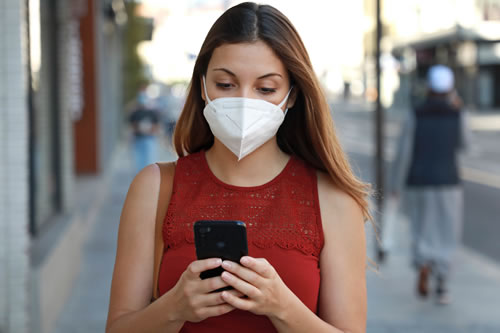It’s hard to remember that merely six months ago there was no mention of the “new normal”, there was just normal. Life and business as usual. Before COVID-19 became a global pandemic, social networks and online platforms were already the next wave in commerce, communication, and marketing. But with millions of people forced to shelter-in-place and quarantine, the rise of social media’s effects has been put in overdrive.
A study released in July 2020 found that more than half of the world now uses social networks. From working from home to finding a way to connect with friends and family, the internet has filled many voids for many people—and it will likely never be the same. Many of the changes are likely to remain long after the virus and businesses would do well to take note. Here are a few ways I see the landscape changing.
The social in social media is king
Even before Coronavirus and quarantines, we were in the midst of what some have called a “loneliness epidemic.” In 2019, three in 10 millennials reported always or often feel lonely, compared to baby boomers who reported rarely feeling lonely. But now that everyone is forced to stay home, it’s easy to imagine that loneliness has skyrocketed as many more found themselves living and working alone. Social networks and online platforms provide a way for people across the world to connect. WhatsApp, Facebook, and Instagram have all experienced at least 40% increase in usage from those under 35. From texts to videos, people returned to social media to actually socialize. Facebook reported that in many of the countries hit hardest by the virus, total messaging increased more than 50% over one month, with voice and video calling more than doubling on Messenger and WhatsApp.
Users expect truth online and on social networks
After it was confirmed that Russia meddled in the 2016 election, people from all sectors warned against believing everything you see online. Most researchers and scientists argued in chorus about the ills of fake news. But social media outlets weren’t interested in making a change or censoring posts. However, with the pandemic, things have changed rapidly. Posts that spread false stories and conspiracy stories about the pandemic were removed, downgraded to limit reach, or warning labels were added on many platforms. A looming public health crisis pulled the lever on online behavior and expectations. Truth and transparency in posting has grown in prevalence and value.
Social media is being used for ecommerce and brand awareness
Perhaps an unforeseen side effect of businesses having a curated online presence, is that customers now go to social platforms to investigate and learn about brands—even more than search engines. More than have of females between 16 and 24 say that they use social networks when researching a product or service rather than a search engine. It’s easy to imagine when you take into consideration the variety of specific platforms and reviews available, but worth noting that businesses must have their profiles and information updated and easily available on all platforms. Because once these potential customers investigate a brand, with the click of a button they might become a current customer. ContentSquare shows that overall ecommerce transactions are up 20% in July, compared to the first quarter of 2020. Whether it’s because shopping in-person isn’t an option, or because we’re all online more, buying online is growing exponentially.
Professional networking online is more important than ever
A survey of 25,000 consumers over 30 markets found that social media engagement has increased by 61%. Consumers and clients are spending more time on their computers, and therefore engaging with friends, brands, and businesses more—but not all in the same way. The secret to networking has always been who you know. Our social networks have allowed us to know more people—but it’s not about knowing just anyone. The key is to connecting with successful people in the areas where you want to grow and nurturing those relationships. Unfortunately, unemployment has risen and doesn’t show signs of right-sizing any time soon, so these professional networks have become key to finding new positions and opportunities. By leveraging social networks like Facebook, LinkedIn, and Webtalk, professionals have prioritized building up these relationships. A professional online presence requires a different tone and perspective than personal accounts, and the added pressure of unemployment has affected the ways that people have utilized platforms and posts during this time.
Social networks
Overall, the way this pandemic has affected online engagement and social networks won’t be fully understood for years. But as a business owner, it’s important to keep pushing and evolving to stay relevant in the new landscape. People are online more than ever before, so oversaturation is a real fear. Authenticity and innovation are the two things that I hope stay with us online and beyond once COVID-19 has passed.

















.@Webtalk is changing peoples lives for the better by donating 50% of the profits to its members AND 10% to charity. No other social media site does that and that is why we love webtalk. It makes socializing for a cause, worth our time online. Thank you @webtalk.